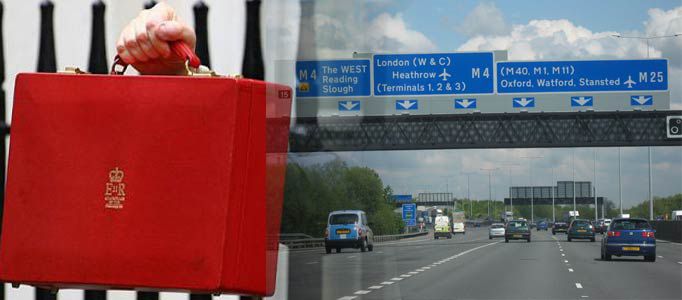George Osborne today unveiled the coalition government’s budget for the next year. Whether you agree with the chancellor’s politics or not, there are some items in the new budget that will affect you as a driver. Here’s our breakdown of the items that will affect motorists this year.
North Sea Oil industry tax cuts
The falling oil prices that have benefited drivers have had a big affect on the oil industry as a whole. To help neturalise the threat, Osborne announced new tax allowances for North Sea oil, with taxes across the oil industry to be cut by a total of £1.3 billion. There will also be added support in the search for new oil sources.
Fuel duty will remain frozen
The fuel duty will not go up in September, as was originally planned. Instead, the freeze will continue, making it the largest fuel duty freeze in two decades. A rather bold claim by Osborne was that the freeze will save motorists £10 every time they fill up. So duty will remain at the current rate of 58p per litre of petrol or diesel.
Slight increase to road tax
Vehicle Excise Duty, more commonly known as road tax, will increase in April by the RPI (retail price index), also known as the headline rate of inflation. The inflation rate as measured in January was 0.3%, so we shouldn’t expect too drastic a change.
Road and infrastructure work
The previous announcement that the government would invest £15 billion into road building was reiterated in the budget, with a number of schemes already at the planning stage. Another surprise announcement was the abolishing of the toll on the Severn Bridge from 2018.

There should be some improvement to roads.
Company car tax
The tax on company cars will raise more slowly than previously planned. There will be additional benefits to companies choosing cars with lower carbon emissions, with taxes at a lower rate than cars with a larger carbon footprint.
Autonomous cars
Following on from other schemes to encourage the development of driverless cars, the budget included a £100 million investment into autonomous car projects across the UK.
And most important of all…
The price of beer, cider and wine will fall by 1p.
You can read the full budget over at the gov.uk website.





 Facebook
Facebook Twitter
Twitter Instagram
Instagram LinkedIn
LinkedIn Youtube
Youtube